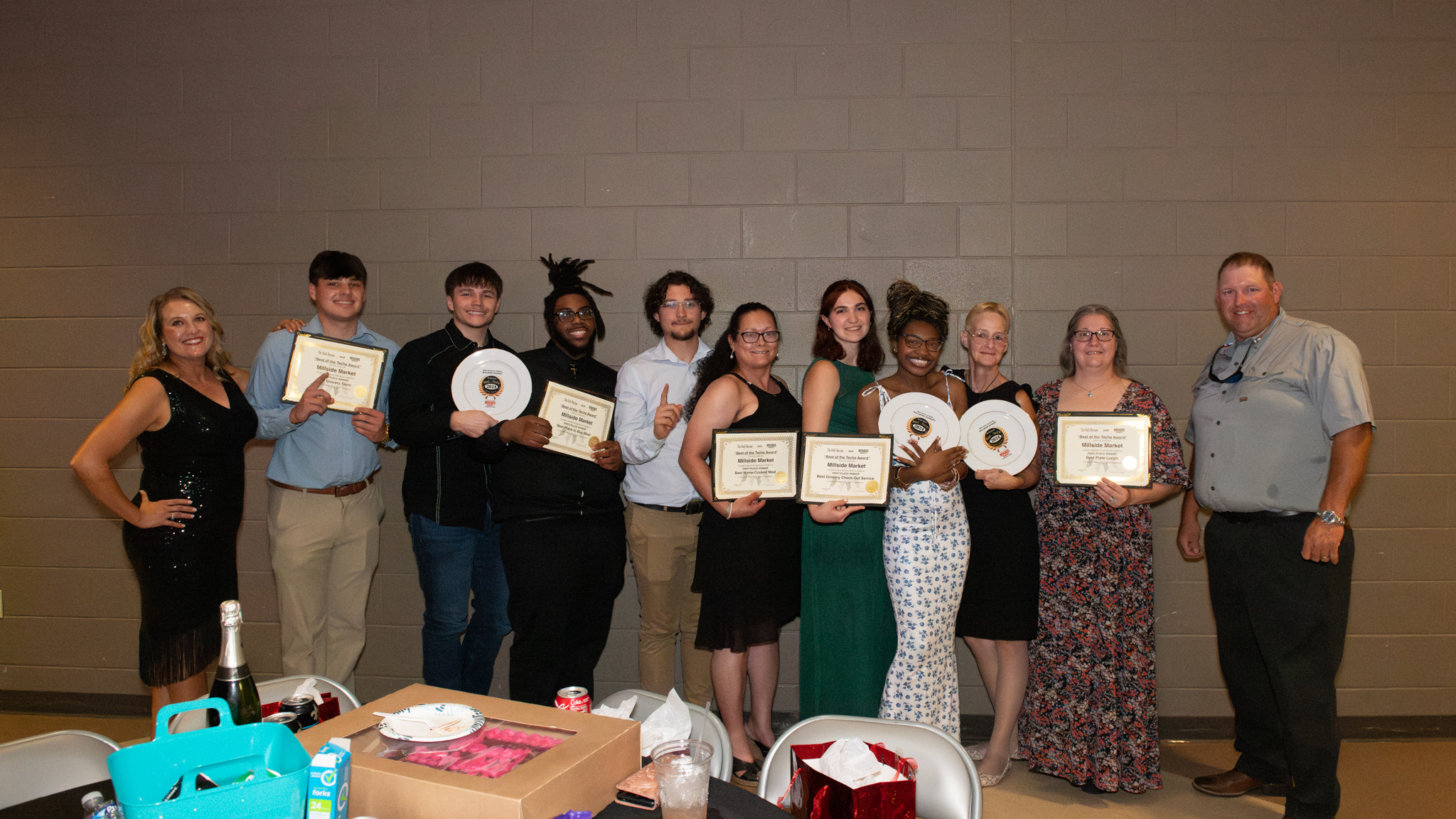Help Them Lead The Way
Published 7:00 am Friday, July 21, 2017

- Steven Lewis, lfet, and Tailon Ross play a table game. Lee Ball Photography
Programs Making Big Differences In Little Lives
br
By Anne B. Minvielle
July is a month for picnics, water activities and fireworks. It is a month that usually involves family get togethers. Unfortunately, there are many children who never experience what a traditional family is or what it means to joyfully celebrate a holiday like the Fourth of July. They have never been to a museum, a theater production, or a major sporting event. Sadly, many lack a role model and thus know little of what it means to live a full life and one characterized by care and concern.
br
July is National Make a Difference to Children Month and an appropriate time to consider the needs of all children and what entities include making a difference to children, as part or the whole of their mission. The origin of this month-long designation lies with Kim Ratz, a child advocate who has sponsored this annual observance since 2006. His goal is to encourage parents, childcare providers and all people who care about our future, to evaluate needs of children and how to meet them.
br
There are a number of entities in our community that make a positive difference in the lives of children. All of them realize that spending time with children will boost their self-confidence and improve their lives in ways that may never be made public.
br
br
Family Services Division
br
The 16th Judicial District of Louisiana comprised of Iberia, St. Mary, and St. Martin Parishes has a Family Services Division, which serves children in unique school-based programs. In 2000, the District Attorney’s Office joined with school boards to establish an early intervention program to work with schools to form positive approaches to preventing problems with certain students before they reached a critical stage and perhaps end up in the juvenile court system.
br
The program became known as the Prosecutor’s Early Intervention Program (PEIP), and focused on students and their families who were in the 4-13 years old age range. In the fall of 2002, the Family Service Division was created. The Executive Director of this division is Gannon Watts, and Claire Daly serves as Program Advisor. The office employs approximately 40 part-time professionals, usually teachers and counselors.
br
According to Watts, “Our division relies on the school systems for funding, as well as grants. We are employed by the district attorney’s office and actually house multiple programs, such as PEIP and Truancy Assessment Service Center (TASC). Families in Need of Services (FINS) is also under the umbrella of the division. “This district is so large that we had to have a program for many more students than one parish districts,” Daly says.
br
Daly recalls that she began developing the program in cooperation with former district attorney Phil Haney to work with children with severe behavior problems. Now, the Family Services Division serves school children with a legal problem, such as truancy or willful violation of school rules. Parents are often a part of the process because of their lack of supervision. According to Daly, “We have case managers or behavior interventionists in the schools who discuss students in need of intervention, but schools must exhaust all their resources to provide help. Schools begin with phone calls or conferences with parents.”
br
Watts says that children often come into the schools with risk factors and they try to reduce those and put in protective factors, such as pro-social activities such as scouting or athletics. If a child has a specific diagnosis, counselors at the school work with the students. If the problems are of a more serious nature, the program refers students and parents to such agencies as Iberia Comprehensive Health.
br
Daly emphasizes that the children or parents are dealing with a legal issue and there are criteria in place to make sure the individual’s right to due process is respected. She says, “We take cases where the families know about the problems, but need extra help in dealing with them. The courts ask for our help, in some cases. Other programs are voluntary, such as PIEP, YASC and FINS. We want to quickly identify and intervene with elementary and middle school students who demonstrate a need for services.”
br
After an assessment of needs, the family services division may direct parents to parenting classes, or a student might be given anger management or social skills training. There is a clear service plan in place for each student identified as needing assistance. Case managers monitor the outcome of the assistance and decide if the case can be closed or if court procedures need to be used. The program also provides in-home counseling. In some cases, there are school-based services in place to help the at risk student, and referral to outside counseling services is not needed.
br
br
Boys & Girls Club
br
As back-to-school season looms, local organizations are transitioning from their summer camp services to their after-school programs. The Boys and Girls Clubs of America helps children develop essential skills, make lasting connections and have fun, and New Iberia is fortunate to have its own club that operates throughout the year. During the school year, the club has an after-school program, and during the summer, camps provide children with a place to go and benefit from activities.
br
Broderick Hunter is the Unit Director of the New Iberia based club, and uses his 21 years experience as a teacher to define the needs of participating children and plan programs to meet them. He says, “Children today have lives filled with stress. We want to help them prepare to have productive lives. The club provides educational skills, as well as activities and organized games and arts. I have had as many as 40 teenage males, and never see them fight or show disrespect. All of our kids know we are there for them.”
br
During the school year, the club is open from 3:00 to 7:00, and Hunter says their staff directs the children in completing school assignments and provides social activities as well. During summer months, the club is open from 7:30-5:30, providing children with a place to go for directed care and direction. He comments that the club does not have the funds to provide a mid-day meal, so children must bring their own lunch, which, for some children, is not always easy.
br
The summer camp is organized so that children can go to activity stations, Hunter says. He reports that the children are even experimenting with growing plants. According t o Hunter, “There are always needs around her. The public can help us make a difference for these children. People often have games or equipment they no longer use. Someone recently donated an air hockey game that the kids are enjoying. Some kids are sometimes in need of wearable clothes and shoes. People can call here at 364-7040, and be assured that their donations will make a difference for our kids.”
br
br
George Rodrigue Foundation of the Arts
br
While it’s always important to recognize the immediate needs of children, it’s also critical to nourish their future aspirations. Renowned artist and creator of the popular Blue Dog, the late George Rodrigue, was devoted to the mission of making possible a present and future impact on children specifically through art. Christine Dunaway, the Development Associate of the George Rodrigue Foundation of the Arts (GRFA), reports that George’s son, Jacque, continues the mission set forth by his father. She explains, “The foundation was formed in 2009 as a non-profit organization. GRFA advocates the importance of the arts in the development of our youth and encourages the use of art within all curriculums as well as supports a variety of art educational programs.”
br
The foundation provides funding for Louisiana A+ Schools, a research based whole school program. “The mission of that program is to nurture creativity in every learner through an arts-integrated school network,” Dunaway said. The foundation’s Education Center in New Orleans hosts Educator Professional Development Workshops as well as special events, according to Dunaway.
br
Another program of GRFA is George’s Art Closet that awards art supply kits to Louisiana art teachers and schools whose funding does not otherwise allow for such expenses. Two $1000 kits are awarded each month. Anyone can join this initiative by donating to GRFA to sponsor an art supply kit for a particular school or area. The public is invited to make a difference through art in education by donating art supplies to GRFA. More information can be found at the foundation’s website, georgerodriguefoundation.org.
br
Dunaway adds, “Through GRFA and arts-integrated learning, GRFA hopes to spark creativity in students with varying interests, especially those who might not otherwise be exposed to art education. We help teachers bring art into the classroom.” Thousands of Louisiana children benefit from the foundation’s devotion to making a difference in children’s educational background.
br
Whitney Houston once sang lyrics in “The Greatest Love of All,” that sum up the importance of making a difference in children’s lives.
br
“I believe that children are our future.
br
Teach them well and let them lead the way.
br
Show them all the beauty they possess inside.
br
Give them a sense of pride to make it easier.
br
Let the children’s laughter remind us how we used to be.”
br
br
br
br
br
br
br
br
br
br





